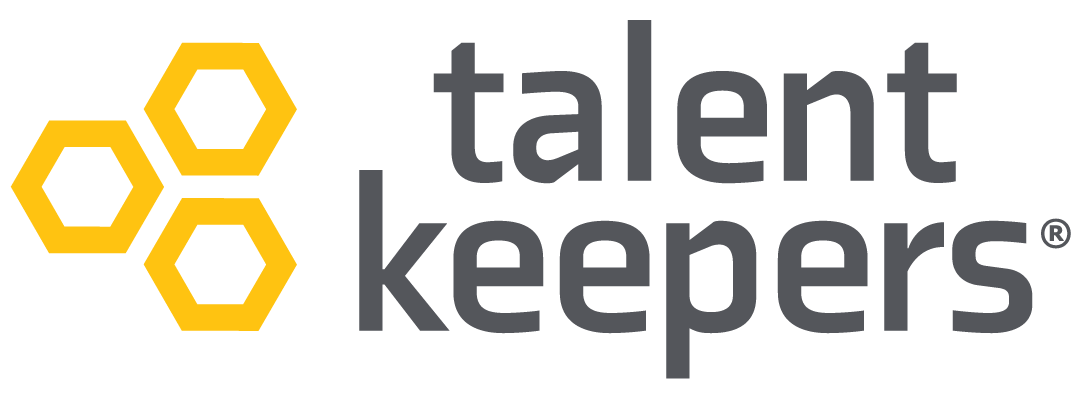Engagement surveys are one of the most effective tools your organization can use to measure employee engagement and satisfaction. Employee engagement is the level of enthusiasm a person feels for their job and the strength of their connection to the organization that they work for.
At Talent Keepers, we have found that successful engagement surveys require the key components:
- Effective survey design and administration
- Confidentiality/anonymity
- Thoughtful frequency and timing
- Communication/follow through on the results
With these strategies in place, the benefits of employee engagement surveys can include increased job satisfaction, higher employee retention, positive workplace culture, and organizational growth.
Why Employee Engagement Surveys are Important for a Healthy Workplace Culture
Feedback from employee engagement surveys will provide your company with helpful insights to foster a healthy workplace culture. Creating a positive and supportive workplace has the benefits of helping you retain your best staff, driving organizational growth, and even boosting business performance.
Allows Employees to Feel Heard
Including your employees in the survey process (and sharing the results) will help them feel heard and valued. Providing anonymous and confidential employee surveys allows your staff to share feedback honestly – and feel safe doing so. Staff surveys are a great way to give your employees a voice, and for you to uncover workplace challenges they may be facing.
Builds Trust with Employees
When leadership acts on the feedback from staff surveys, it goes a long way to bolster employees’ feelings of being supported and appreciated. Keep your employees updated on the progress of action related to your engagement surveys. This transparency will go a long way to building trust in your organization. And when employees see that their feedback is being acted upon, it will encourage thoughtful and candid feedback on future surveys.
Drives Organizational Growth
The results from your employee surveys will help your company progress. You may find opportunities to provide your employees with career development needs. Engaged employees learn new skills; they are more confident, productive, and happy in their careers. Your staff will likely stay on board if they feel you are committed to your growth!
Leads to Higher Retention
Company surveys facilitate higher retention by helping you pinpoint issues that may drive employees to other organizations. High employee turnover can lead to many challenges for your business: lower productivity, poor workplace culture, and poor customer relations. Surveys will inform decisions for actionable changes to retain your best workers.
Improves Employee Satisfaction and Happiness
People engaged in their work and company are less likely to seek better opportunities. Employee satisfaction surveys will identify signs of disengaged employees. They are less productive and may fall into behaviors that contribute to toxic workplace cultures. Use your surveys to identify causes of employee disengagement.
Helps Executives Understand Employee Needs
One purpose of employee surveys is to help leaders understand their employees’ needs.
These might be needs such as finding growth opportunities, desiring a better understanding of organizational roles, or addressing workplace culture issues. With the help of engagement surveys, HR can pinpoint where to focus on delivering meaningful impact and developing retention strategies.
Enhances Leadership Effectiveness
One of the best benefits of conducting employee engagement surveys is the opportunity they present to enhance leadership effectiveness. Using survey results, leaders can identify focus areas to build stronger relationships. This may include executive coaching to hone their People-leading skills and coaching techniques, improve their talent acquisition performance, and more.
Data Can Be Used for Recruitment
With regular engagement surveys, you’ll have a historical account of employee feedback to assess the progress of change initiatives. Benchmarking data allows leadership and HR to track changes over time to ensure that your company is progressing toward the organizational growth it is aiming for. This data can be an excellent tool for recruitment, as it can be used to demonstrate your company’s commitment to a supportive, healthy workplace.
Leadership Held Accountable for Growth
Engagement surveys can be used to hold leadership accountable for the growth of the organization. Surveys can identify issues contributing to high employee turnover and spark new initiatives. Employee turnover rates are one measurement that can signal if leadership is making effective changes to improve the workplace environment. If turnover rates are improving, that is a good indicator that leadership is driving positive organizational growth and progress.
Fosters a Positive Workplace Culture
When your organization seeks and is responsive to employee feedback, it sends a message that you care about creating a positive workplace culture. It’s important to promptly let your employees know you’re listening to their concerns and are committed to their job satisfaction. A positive workplace culture is directly tied to the success of your business, and your employees will be more productive in a supportive environment.
How to Use Employee Engagement Survey Results to Improve Business Operations
When using employee engagement survey results to improve business operations, you want to use the best communication practices, implementation, analysis, action, and ongoing improvement. An engagement survey solution like TalentWatch is a great way to ensure these practices are in place.
- Communication: It’s essential to communicate the purpose of surveys to your team and review the results with them. Sharing information with employees is critical to promote transparency and to engage all team members in the process. Segmenting results into departments or by teams may be helpful, and tailoring the message to each group. The results should also be incorporated into management’s coaching plans and 1:1s.
- Implementation: Effective implementation of surveys requires excellent communication and solid buy-in from top management. It would be best to involve your employees in the survey process for transparency and to promote engagement.
- Analysis and Action: Review the survey results to identify obstacles to employee engagement in your organization. Then, prioritize them and develop actionable strategies and initiatives.
- Ongoing Improvement: To improve business operations (and authentically commit to organizational growth), you must participate in continuous improvement and measurement. Regularly monitor progress, and assess the impact of changes.
What Are the Disadvantages of Employee Engagement Surveys?
When employee engagement surveys are not conducted properly, they can harm your organization’s progress. Approach employee engagement surveys with thoughtful planning, clear communication, and a commitment to action based on the survey results. When embarking on the process, remember these factors to ensure that you are taking steps to promote, rather than inhibit, organizational growth.
Survey Design Challenges Can Produce Misleading Insights
Misleading insights are a common issue when surveys are not created properly. Some examples of bad survey design include asking vague questions, leading respondents to a preferred answer, and asking overly-complex questions.
A well-designed survey can lead to trust among your employees when the survey design obscures authentic efforts to improve the workplace. To prevent this, deliberate with the questions being asked or work with a professional service, like Talent Keepers.
Lack of Anonymity and Confidentiality Leads to Self-Censorship
Anonymity and confidentiality are crucial to gaining candid feedback from your employees. A breach of privacy will impact the survey’s performance, as the respondents will be less likely to provide truthful answers. It can also negatively affect organizational culture.
Be sure to allow your employees to share honestly and without fear of penalty if you want honest feedback.
Survey Fatigue Can Impact Participation
Engagement surveys are an excellent tool, but overuse can wear away their effectiveness. If you survey your employees too often, you’ll likely start to receive lower participation. And if your employees aren’t engaging with the survey process, it will be hard to engage them with the work that stems from it.
Find a cadence for surveying your employees that strikes a good balance. Working with an experienced engagement survey professional like Talent Keepers can help!
Lack of Follow Up Can Hurt Employee Trust
You risk employee trust when leadership collects data and does not act upon it. Employees will lose faith in the process and be more reluctant to engage in future efforts.
Taking the time to share why action is not being taken, or is taking longer to enact, is better than not communicating at all.
FAQs about Employee Engagement Survey Benefits
Here are some of the most frequently asked questions about engagement surveys and how they support your business.
How effective are engagement surveys?
Engagement surveys are a very effective tool. Your company can use them to measure the level of satisfaction your employees have with their job and the strength of their connection to your organization.
Does employee engagement increase business performance?
Yes, employee engagement has a direct impact on business performance. Engaged employees are motivated, which drives higher performance. Engaged employees also inspire their team members to perform highly, which improves overall business performance.
Does employee engagement increase productivity?
Yes, employee engagement drives increased productivity for your organization. When employees enjoy a happy, supportive workplace where they feel valued and heard, they are more productive and strive to help your business succeed.







